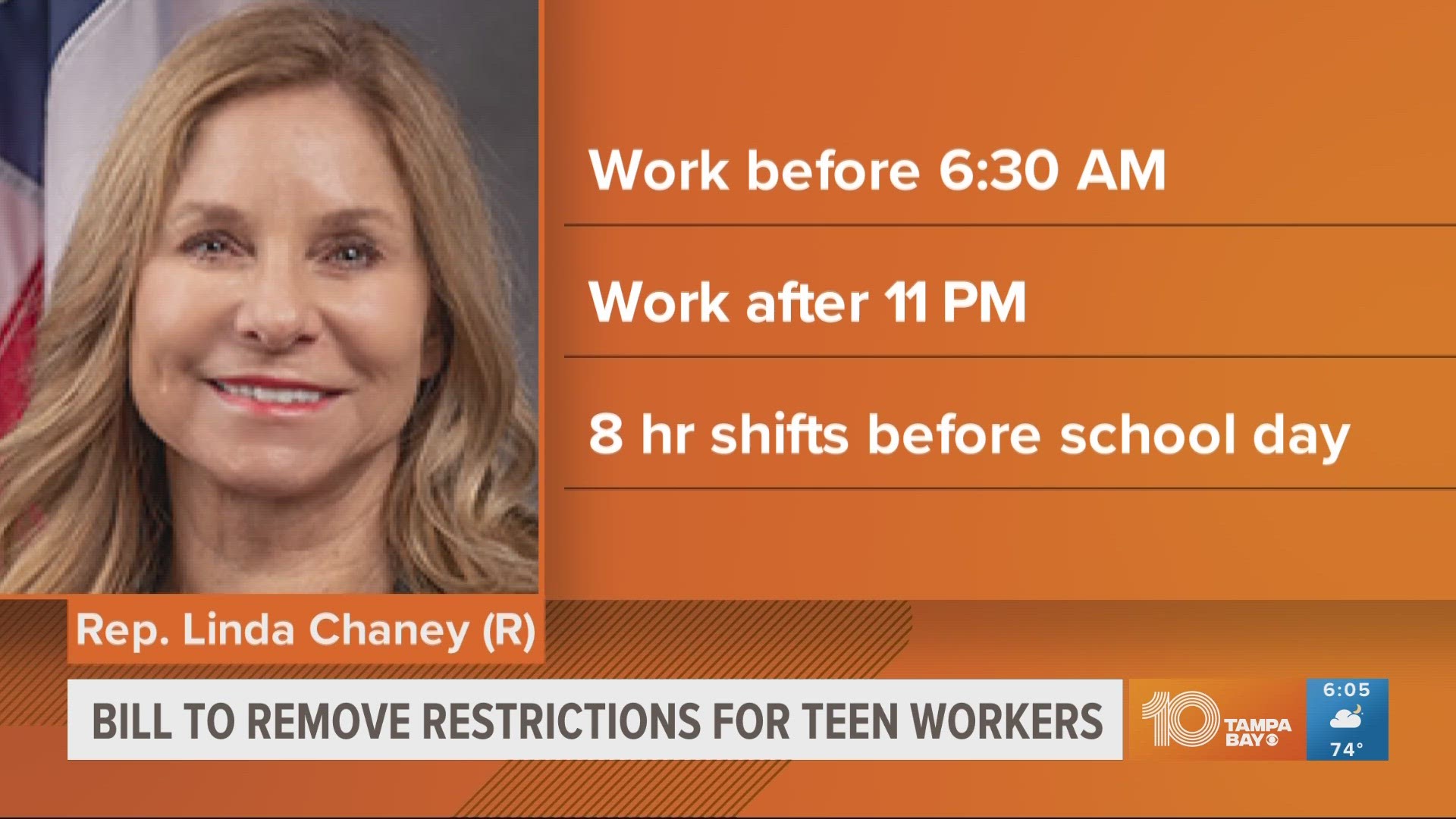TALLAHASSEE, Fla. — Under Florida law, employers can't make their underage employees (16 or 17-year-olds) work between 11 p.m. and 6:30 a.m. or for more than eight hours on any day before school. A Florida lawmaker is trying to change that.
Republican Florida Rep. Linda Chaney has filed HB 49, a bill that, if signed into law, could change the current employee age restrictions on the books and allow employers to put minors on overnight shifts and over 30-hour work weeks even when school is in session.
The bill also contains language allowing employers to treat minors as adults under labor laws and forbidding individual counties from enforcing stricter limitations on underage employees.
It would make Florida the latest state to pass major legislation weakening child labor laws after Arkansas, Iowa, New Jersey and New Hampshire.
Labor shortages
The bill comes at a time when Florida and other U.S. states are reckoning with a labor shortage. While data shows Florida has a higher percentage of its workforce employed than before the pandemic, The U.S. Chamber of Commerce estimates that for every 100 job openings, Florida has 57 workers available.
The Chamber of Commerce suggests the disparity is due at least partly to a lingering effect of the pandemic, the so-called "Great Resignation" where workers either left the industry they were working in or sought jobs with better pay, benefits or remote work options.
In Florida, the shortage has reportedly been exacerbated in certain industries by state laws restricting immigration and migrant labor. Florida also has sky-high levels of inflation and housing costs compared to the national average which, according to an analysis of Census data by the Capitolist, may also be driving low-income workers out of the state.
Conservative ideology
Looking to fill empty job positions, Republicans and business leaders, many of whom have often derided child labor restrictions as government overreach, have tried to cast child labor as morally valuable for young people.
Child welfare advocates, labor rights groups, and other opponents of child labor have pointed out that loosening restrictions has frequently left young people exposed to dangerous work environments. They also say that expanding child labor can disrupt development and education, encouraging kids to drop out of school.
If HB 49 is passed, Florida would begin loosening its child labor restrictions starting in July 2024. The bill is expected to be discussed in committee before being introduced in the next legislative session.

